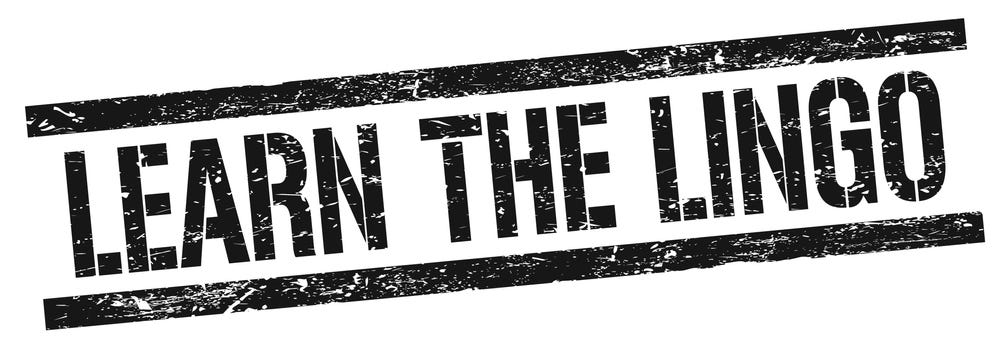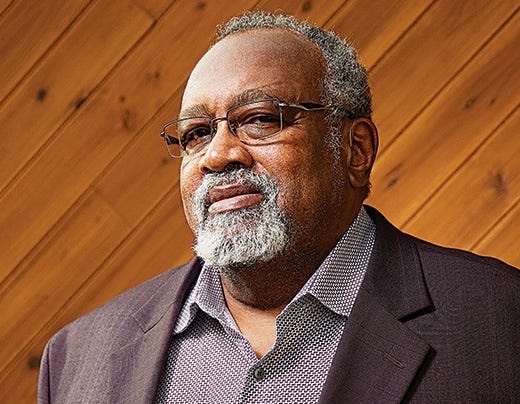E-Pluribus | May 25, 2022
Gender ideologues, the lingo limbo, and a Princeton professor on his own cancellation.
A round-up of the latest and best writing and musings on the rise of illiberalism in the public discourse:
Kathleen Hayes: Gender Ideology’s True Believers
While Kathleen Hayes acknowledges classifying hardcore believers in gender ideology as cult members might sound harsh, she believes her own experience as a (now former) Trotskyist qualifies her to make the assessment. Hayes writes at Quillette that the acceptance such groups offer adherents masks the harmful and even dangerous aspects of going all in.
I was struck by the many people calling trans activism a cult. Sometimes, they were parents whose children were transformed seemingly overnight into mouthpieces of incomprehensible jargon and vitriol; sometimes they were detransitioners or desisters who’d perhaps been those children. Both groups have my sympathy, and I agreed with them, but it cries out for elaboration beginning with the questions: What is a cult? And does the term really apply to trans activism?
I don’t intend the term as a slur. I’m also well aware that the images it evokes—vapid smiles and glazed eyes, the guy on the street corner passing out laminated literature and intoning about doomsday—defy the living experience of the everyday person becoming attracted to a cultish group. In saying today’s trans activism bears similarities to a cult, I mean no disrespect to those people who assume that the movement simply represents trans rights, or to trans people who may not agree with the activism conducted in their name. After reading and watching countless articles and videos by many trans people, as well as detransitioners and desisters, again and again, I’ve been struck by the obvious intelligence, goodwill, articulateness, and independence of spirit that seem to characterize this disparate group.
So I use the c-word with mixed feelings, knowing it could be a huge turnoff for many people whom I’m trying to reach. I’ve decided to use it anyway. Because if I had to distill my objections to trans activism into one bite-sized morsel, it would be that it denies people the language they need to express reality. I use the word “cult” not as an insult, but because it fits.
Read the whole thing.
John McWhorter: Every Day, We’re Told to Use New Lingo. What Does That Really Accomplish?
With a constant daily stream of new buzzwords, in-words and out-words, and euphemisms of all kinds, one wonders “how low can you go?” with the English language. John McWhorter in his latest New York Times newsletter says that this trend goes beyond the normal evolution of language to almost an end unto itself, style over substance.
As I’ve discussed before in this newsletter, research has shown that language can influence thought, but sometimes only slightly. And what pops up in a psychological experiment may not track with real-life behavior: The Implicit Association Test, more than two decades old, has often been used to demonstrate how implicit bias is supposed to work — how negative associations with terms such as “Black” may correlate with people exhibiting prejudice or bigotry. But a more recent analysis argues that there is no evidence that quietly associating negative terms with Black people rather than white people in such tests correlates with racist behavior.
Today’s predilection for newspeak neglects all of this. Frankly, I think it is partly because generating new labels offers instant gratification, especially with the internet handy. It’s easier to introduce new terms than to change the way different groups referred to by those terms are really perceived. In that way, never-ending calls to change the way people talk and write is less an advance than a cop-out.
Terminology will, of course, evolve over time for various reasons. But broadly speaking, thought leaders and activists of past eras put their emphasis on what people did and said — not on ever-finer gradations of how they might have said it.
Read it all.
Joshua Katz: Princeton Fed Me to the Cancel Culture Mob
Pluribus has followed the story of Princeton’s Joshua Katz over the past few months that has now culminated in his firing from the Ivy League institution. The Wall Street Journal gave Katz an opportunity to respond Tuesday, and Katz explains how, under the pretext of a previously settled and unrelated issue, the school threw, or perhaps more accurately, slowly dragged him under the bus for his political views.
Why would one of the country’s leading educational institutions do this to a successful faculty member who once made a grave mistake, admitted to this mistake as soon as he was investigated for it and served his time without complaint? Unfortunately, the current environment makes the question all too easy to answer: In the summer of George Floyd, certain opinions about the state of America that would have been considered normal only a few months earlier suddenly became anathema. For better or worse, I was the first on campus to articulate some of these opinions, publicly criticizing a number of “antiracist” demands, some of them clearly racist and illegal, that hundreds of my colleagues had signed on to in an open letter to the administration in early July 2020.
While I stand by my words to this day, even in the immediate aftermath of the faculty letter, few of my colleagues gave signs of standing by theirs. But as they go about their merry destructive way, I live with the tremendous backlash against me, which has never ceased. It was during a fleeting and illusory lull in late July 2020—after Princeton’s president, Christopher Eisgruber, who had initially condemned me, stated that what I had written was protected speech after all—that I rashly suggested all was well.
[ . . . ]
But no matter. The point was to stir up the mob, which it did. It also stirred up the woman with whom I’d had the relationship so many years earlier. Having resolutely refused—of her own volition, I stress—to participate in the investigation that led to my suspension, she now provided the university with a selection of decontextualized emails. I then provided the context, in full detail, but the administrators didn’t care. They had their ammunition and were all too glad to use it.
Read it all here.
Around Twitter
While Princeton has gone after Joshua Katz, another Ivy League school set its sights on Roland Fryer (as we have covered here in March and April). Via Free Black Thought, Glenn Loury:
The New York State Education Department’s curious decision to cancel its June Regents Examination in U.S. History & Government due to “content” that could “compound student trauma” in the wake of the Buffalo mass shooting has raised some eyebrows:
And finally, there is some evidence of discontent at Duke University over DEI training:













